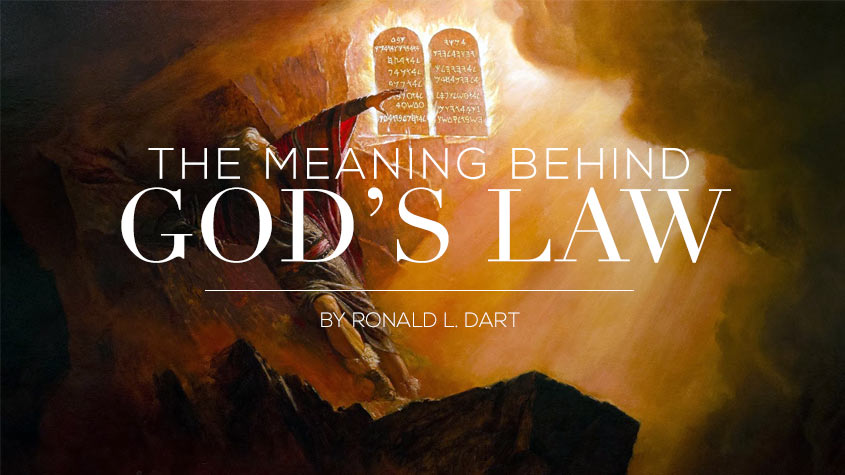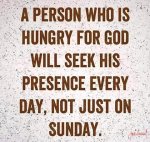This may help as to Jesus words in Matthew and concerning , not one jot nor tittle.
Matthew 5:17-20 – A Thorough Investigation
January 1, 2015/by J.K. McKee
"According to Yeshua the Messiah’s words here in Matthew 5:17, delivered within His Sermon on the Mount in Matthew chs. 5-7, the Savior clearly states what His views are regarding the Torah of Moses. Along with Psalm 23 and the Ten Commandments (Exodus 20:1-17), Matthew 5-7 includes the Beatitudes (Matthew 5:2-12) and the Lord’s Prayer (Matthew 6:9-13), the four passages together composing the most frequently read and valued sections of the Bible for most evangelical Christians. Yeshua’s statements about the Torah are not at all hidden away in some obscure place. Jesus says very plainly that His purpose was not to “abolish” the Torah or Law of Moses, but to “fulfill” it. Gain a deeper understanding of Matthew 5:17-20 from a pro-torah perspective."
[.........]
"...Indeed, why do many Christian theologians assert that Yeshua abolished the Torah or Law
of Moses, when all of the Messianic prophecies of the Tanach or Old Testament speak to the
contrary? Do these prophecies not tell us that when the Messiah comes to establish His Kingdom
that the Torah will fully go forth from Zion? One of the most important missional admonitions in
the Bible, which is also employed within the traditional Sabbath liturgy of the Jewish Synagogue,l
speaks of the Torah going forth to the nations and world peace being enacted:
“And it will come about in the last days that the mountain of the house of the LORD will
be established as the chief of the mountains. It will be raised above the hills, and the
peoples will stream to it. Many nations will come and say, ‘Come and let us go up to the
mountain of the LORD and to the house of the God of Jacob, that He may teach us about
His ways and that we may walk in His paths.’ For from Zion will go forth the law, even
the word of the LORD from Jerusalem. And He will judge between many peoples and
render decisions for mighty, distant nations. Then they will hammer their swords into
plowshares and their spears into pruning hooks; nation will not lift up sword against
nation, and never again will they train for war” (Micah 4:1-3).
“Now it will come about that in the last days the mountain of the house of the LORD will
be established as the chief of the mountains, and will be raised above the hills; and all the
nations will stream to it. And many peoples will come and say, ‘Come, let us go up to the
mountain of the LORD, to the house of the God of Jacob; that He may teach us
concerning His ways and that we may walk in His paths.’ For the law will go forth from
Zion and the word of the LORD from Jerusalem. And He will judge between the nations,
and will render decisions for many peoples; and they will hammer their swords into
plowshares and their spears into pruning hooks. Nation will not lift up sword against
nation, and never again will they learn war” (Isaiah 2:2-4).m
Prophecies such as these hardly sound like the Messiah coming to abolish the Law—
especially if the Messiah is to rule and reign over Planet Earth, and the Torah is to go forth from
Jerusalem! And more to the point: no good Bible teacher or theologian is ever going to honestly
argue against world peace.
Various Jewish Rabbis of the past century, as a result of interreligious dialogue, have
certainly been able to examine the New Testament as a valuable historical and philosophical text.
Many have properly recognized, at least from a factual perspective, that Jesus did not abolish the
Torah. Alfred J. Kolatch states the following in The Second Jewish Book of Why:
“During his career as preacher to his fellow Jews in Palestine, Jesus was careful to point
out that he had no intention of promoting the idea that observance of Jewish law should
be abandoned. The Synoptic Books of the Bible (Matthew, Mark, and Luke) portray Jesus
as a practicing Jew....Given Jesus’ portrayal as an observant Jew in the Synoptic Gospels,
the total abandonment of Jewish ritual by the Christian Church seems strange. It is
explained as an attempt by Church Fathers to draw a sharp distinction between Jew and
Christian and thereby strengthen the Church. The abandonment is also the result of the
great resistance encountered by Paul (and others) in his missionary activity among the
Gentile population outside of Palestine. Paul found himself unable to win converts to
Christianity when he insisted on adherence to biblical laws such as those pertaining to the
Sabbath, family, purity, and especially circumcision.”n
To Kolatch and many other Jewish teachers and researchers, their problem is not with
Jesus and His Torah observance. Rather, their problem is with Paul. Kolatch goes on and says, “Paul
condemned as his enemy those Christians who continued to follow the Old Jewish law of
circumcision, because by their actions, he said, they were shaking the faith of ignorant Christians
and were turning away Gentiles from the new message he brought them.”o
To only compound the complexity of this dilemma, it is not at all helpful when one witnesses the thoughts of a Christian
theologian like R.T. France, who in his Matthew commentary (NICNT 2007) actually says,
“Matthew took a very conservative line on legal observance, believing that the Christian disciple
was bound to continue to obey all the commandments of the Torah just as much as, or indeed
more meticulously than, those Jews who had not followed Jesus....If that is what Matthew
intended, the interpreter must face the fact that this teaching is out of step with the overall thrust
of NT Christianity and with the almost universal consensus of Christians ever since...”p
Many of the New Testament verses we will examine in this section of The New
Testament Validates Torah are found in the Pauline Epistles. We are not to interpret what Yeshua
says about the Torah in light of what we think Paul might say. Rather, we are to interpret and
examine the Apostle Paul’s words through the lens of what Yeshua the Messiah says! Paul himself
would agree with this. He wrote his disciple Timothy that Yeshua’s revelation and words on
matters remain primary, and that one’s doctrine must be in alignment with the Messiah’s doctrine:
“If anyone advocates a different doctrine and does not agree with sound words, those of
our Lord Yeshua the Messiah, and with the doctrine conforming to godliness, he is conceited and
understands nothing; but he has a morbid interest in controversial questions and disputes about
words, out of which arise envy, strife, abusive language, evil suspicions, and constant friction
between men of depraved mind and deprived of the truth, who suppose that godliness is a means
of gain” (1 Timothy 6:3-5).
Yeshua’s words in Matthew 5:17-19 about the Torah being valid instruction for His
followers, remain primary to whatever else is said in the Apostolic Scriptures (New Testament)
about the Law of Moses.q
You will find that it is not as difficult as you might think, to view
passages that may appear or have traditionally been interpreted as anti-Torah, to actually not be
anti-Torah. More than anything else, the pastor’s mistake and the mistake of many others, has
been in not carefully examining the relevant verses.
*Note* Bibliography notations throughout this excerpt are found at the source link*



